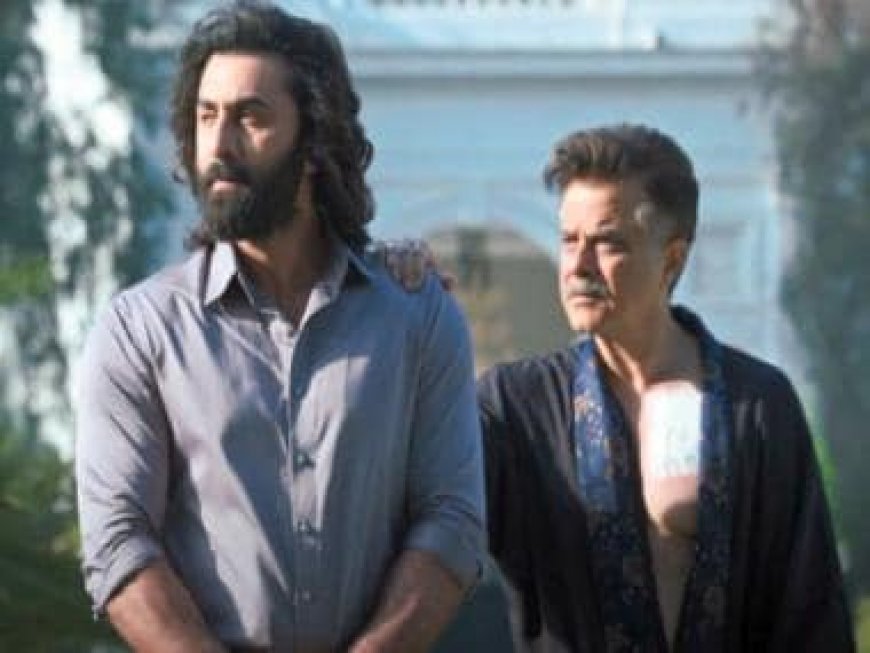How violence shown in Ranbir Kapoor’s Animal can affect mental health | Rewind 2023
How violence shown in Ranbir Kapoor’s Animal can affect mental health | Rewind 2023

Cinema play a deep and influential part in the human life, be it a young kid or adult. Violent and misogynistic movies like Ranbir Kapoor’s Animal, can lead to desensitization and aggression. When the impact on the human mind is so high, the message we impart becomes a very important phenomenon for self and society itself. Lets hope that we are able to wrap up 2023 with Bollywood releasing some responsible films.
Psychotherapist from Mumbai, Padma Rewari says, “What we depict and showcase can have a strong impact on individual lives. So often we are not able to differentiate between the real and reel life and this can have negative repercussions.”

Responsible content curation is important before it reaches the public. The link between watching violence and mental health spans across all age groups, with varying degrees of impact on children, teenagers, and young adults. While entertainment, including cinema, can be a powerful medium for storytelling and artistic expression, its responsibility in shaping minds becomes crucial due to the potential negative effects on mental health.
Dr Santosh Bangar, Senior Consultant Psychiatrist, Global Hospitals, Mumbai says, “For young children are particularly vulnerable to the influence of violence in media. Exposure to violent content may lead to increased aggression, desensitization to real-world violence, attachment issues and heightened anxiety. Children may struggle to distinguish between fiction and reality, leading to potential behavioral issues.”
Moreover, constant exposure to violent imagery can contribute to nightmares and sleep disturbances, impacting their overall mental well-being. When it comes to teenagers, Dr Banga explains that during adolescence, individuals are in a critical stage of emotional and cognitive development. Exposure to violent content can affect the way teenagers process and respond to emotions. It may contribute to desensitization, desensitizing them to real-life violence and diminishing empathy. Additionally, teens may be more prone to imitating aggressive behavior depicted in media, affecting their social interactions and relationships.
Dr Banga adds that for adults “In young adulthood, individuals are still forming their identities and belief systems. Exposure to pervasive violence in entertainment may shape their worldview and attitudes towards conflict resolution. It can contribute to heightened stress levels, desensitization, and, in some cases, desensitization to real-world violence. Young adults may also be susceptible to developing anxiety and depressive symptoms due to the constant exposure to distressing content.
Responsibility of cinema
Cinema, as a powerful form of storytelling, has a significant impact on societal perceptions and norms. Filmmakers and content creators bear a responsibility to be mindful of the potential consequences of depicting excessive violence. Responsible storytelling involves considering the psychological well-being of the audience and promoting positive messages that encourage empathy, resilience, and constructive problem-solving.

The potential of cinema world has a huge influence on the mass and what stories they reveal needs to be considered giving the audience a holistic view on the big screen. It plays a huge impact on the societal perspectives. Thereby it must focus on mindful storytelling which keeps the cultural norms and value systems in mind. Rewari emphasises on this fact and says, “At what level we can show violence needs to be strictly filtered by the cinema censored committee members where they must have a mental health specialist who too has a say which is taken on priority.”
Negative effects of violent cinema like Animal
Dr Banga says, “Excessive exposure to violent or distressing content can contribute to a range of mental health issues, including anxiety, depression, and aggression. It may also desensitize individuals to real-life suffering, fostering a numbing effect that impedes emotional responsiveness.”
Moreover, the normalization of violence in entertainment can perpetuate harmful societal attitudes and contribute to a culture of aggression. In conclusion, the link between watching violence and mental health is a complex and multifaceted issue that affects individuals of all age groups.
Recognizing the responsibility of the entertainment industry, particularly cinema, is essential in fostering a culture of mindful storytelling that prioritizes the mental well-being of its audience. By promoting positive messages and responsible content, cinema can contribute to a healthier and more empathetic society.
Cinema’s impact on mental health
The movies which were first only shown in cinema theatres are now accessible full time to every individual all the time. What can be a strong influence can never be known.
Rewari says, “This impact on the mental health where people see violence which has led to anxiety, high BP, palpitations, insomnia cannot be ignored. We also know of these violent movies have triggered young juvenile delinquents in the making. It is very difficult to analyse what impacts or influences a person.”
She explains that there have been so many instances where youth, adults have been affected mentally and physically because of when they have seen extreme violence or high end emotions in movies. So often it is not easy to wean off a movie with this impact which plays on a person subconscious mind and people trying these stunts in real life.
It’s time to reflect with current life styles and environment triggers what message we wish to give public who are already going through enough stress in their daily life. The youth today need to see more on real life positive stories that can be instrumental in changing their lives for the better than only seeing what negative content because it sells.
What's Your Reaction?

























































